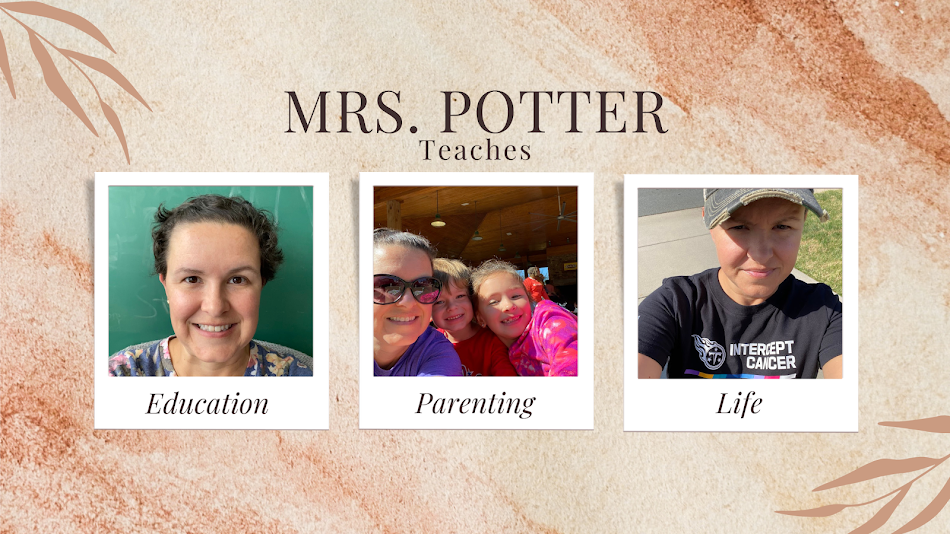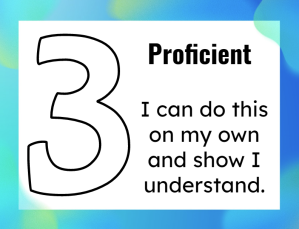Wednesday, November 23, 2022
Higher ed degrees... worth it?
Monday, November 14, 2022
Standards Based Grading for the win!
I am officially a month into teaching in North Carolina and experiencing standards-based grading and I am 100% sold that this is the best method of grading especially at the elementary level.
For those unfamiliar with standards-based grading, students receive a 1-4 for each standard taught during a quarter based off of their proficiency with each standard instead of a quarterly grade being determined by averaging a group of assignments on a 0-100 scale. Students might receive a 3 on two math standards and a 2 on another standard. This more focused approach shows the exact area of weakness, whereas a student could receive assignments of: 100, 75, 90, 50 and earn a C. Two of the assignments were an A so is it truly showing their academic ability when they had one assignment that they struggled on?
With standards-based grading the focus is on the learning and not the grade. Students understand that their goal is to show mastery of the standard by the end of the year, so if they don't understand something at first they still have time to show that mastery by the end of the school year.
It also means that if they don't understand something right away, instead of getting a 50% or lower on an assessment and then struggling to dig themselves out of that hole for the rest of the quarter, they can prove that they have mastered a standard and receive a 3 on it.
I find that I am not grading every little thing that we do together. At my previous county I was required to put in 2 grades per week for each content area. This is exhausting and completely puts the focus on the grade and not the content being learned.
So much of learning is doing things together. Why should I be required to grade something that we did as a class? I've taught my students to not worry about if something is graded, but instead just focus on learning how to complete the task at hand so that when something is truly graded they will be comfortable doing it.
The easiest way to organize standards-based grading is by having students create a portfolio of their learning throughout the year. In my classroom students have a binder with dividers for each content area where they keep their assessments and any other completed work that shows their mastery.
I've also created these signs for my classroom so that the students understand the meaning behind each level. It is a visual reminder that allows them to also rate themselves on each topic. They can read the descriptions and decide where they think they fall on a certain topic
I wish there was a way to continue this idea of standards-based grading throughout the rest of the grades 8-12 (unless it is already out there and I just haven't seen it yet). I remember being in middle and high school and there being so much pressure to get good grades that somethings I wasn't always focused on what I was actually learning.Thanks for going on my standards-based grading rant with me! I hope that we can continue to shift from a focus on grades to a focus on learning.
Sunday, November 13, 2022
Rebranding Myself
I've decided to start over. To reorganize my online presence. So I'm "rebranding myself" just sounds right. I don't have a brand that I am trying to sell, but I do enjoy blogging and creating things for school, my kids, and just life in general so why not put them altogether?
I have been all over the place in the past. I focused on education content for awhile, then changed to focusing on cooking and recipes, then kids came into the picture and I created content for them. Then I had some life changing stuff I went through the past 2 years. It gets messy when things are in 10 different places, so why not combine them all into one!
So here we are! Welcome!
My name is Amber Potter. I have been teaching since 2010. I have taught in Virginia, Maryland, and now North Carolina. I was married in 2013 and have two wonderful kids. I enjoy cooking, coffee, playing golf, and being creative.
As the tagline says, this blog will be a little bit education, a little bit parenting, and a little about life. Welcome aboard, I hope you enjoy the ride!

